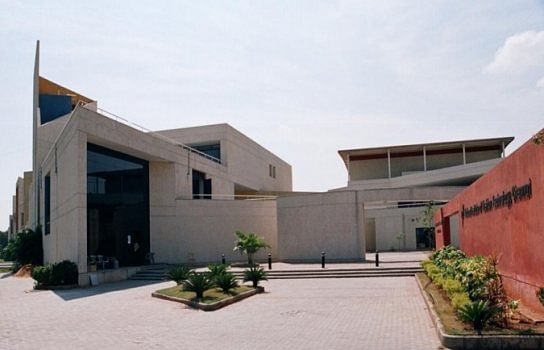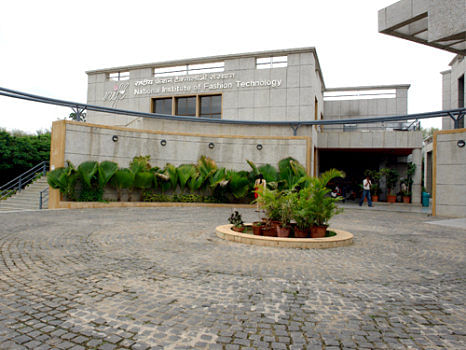MFM Syllabus and Subjects

MFM syllabus is divided into four semesters over two years. In addition to core coursework, the Master of Fashion Management Syllabus is designed to provide students with practical and theoretical knowledge. A Master’s degree in Fashion Management can prepare postgraduate students for careers as costume designers and in many other fields.
Semester Wise MFM Syllabus
The MFM course syllabus prepares students to work in textile mills, home furnishing companies, large retailers, brand marketers, manufacturers, consultancy organizations, e-retailers, international brands, and startup firms.
The MFM syllabus PDF can be downloaded online for free. The following is the MFM syllabus semester-wise:
MFM First Year Syllabus
Below is a table of Sem I & II for MFM:
|
Semester I |
Semester II |
|
Basics of Fashion |
Fashion Finance & Economics |
|
Process of Garment Manufacturing |
Logistics & Resource Management |
|
Fashion Marketing & Merchandising |
Fashion Communication |
|
Fashion Styling & Photography |
Lifestyle Journalism |
|
Fashion Design Process |
- |
MFM Second Year Syllabus
Below is a table of Sem III & IV for MFM:
|
Semester III |
Semester IV |
|
E-Commerce |
Industry Internship |
|
Consumer Behaviour |
Fashion Event Management |
|
Research Methodology |
Masters Project |
|
Fundamentals of Entrepreneurship |
- |
|
Communication Skill, Grooming & Etiquette |
- |
|
Visual Merchandising & Window Display |
- |
MFM Course Subjects
The MFM curriculum enables students to deal with textile challenges through costume designing techniques. A number of fashion professionals consider this course to be one of the world’s best.
Students choose a variety of electives and core courses during the two-year program. The course includes the following MFM subjects list:
- Fashion Finance & Economics
- Logistics & Resource Management
- Fashion Communication
- Lifestyle Journalism
- E-Commerce
- Consumer Behaviour
- Fundamentals of Entrepreneurship
- Fashion Event Management
- Fashion Marketing & Merchandising
- Fashion Styling & Photography
MFM Course Structure
The Master in Fashion Management program lasts two years. The MFM program is divided into four semester-long sessions over its two years, making it a very strong program for students who desire individualized instruction.
MFM students are prepared for increased responsibilities in the workplace. Students must complete a research project by the end of their fourth semester in order to gain practical and theoretical skills.
The course is structured as follows:
- IV Semesters
- Core Subjects
- Elective Subjects
- Practical Workshops
- Research Project/Thesis Submission
MFM Teaching Methodology and Techniques
MFM curriculum integrates new technologies into fashion management. Elective subjects from different specializations are taught in addition to lectures and practicals. Most colleges and universities include internships and training in their core curriculum. Teaching methodologies can be used to acquire textile industry skills. Students can use developing technologies in addition to traditional classroom instruction.
Generally, the following teaching methods are used:
- Seminars
- Group Projects
- Digital Learning
- Traditional Classroom-Based Teaching
- Practical Lab Sessions
- Self Directed Learning
- Interactive Lectures
- Small-Group Work
- Workshops
- Problem-Based Learning
MFM Projects
Students in the MFM program will gain expertise and experience in fashion management through a research project. In the MFM course, students will learn factors that influence the success of research projects and strategies for implementing them.
- An Exploration of the Importance of Clothing. Does it Effectively Represent a person’s Culture, Status, Power, and Ambition an Individual?
- The Psychology of Fashion and Marketing: A Systematic Study. Behind the Scenes of How Brands Tap into People’s Insecurities to Sell their Products.
- This study analyzes the Introduction of Wearable Technology as an industry trend. Using Apple Watches as an example.
MFM Course Reference Books
Both online and in stores, fashion management books are available for MFM. There are also many titles and publishers to choose from. In addition to covering all major topics, the MFM books provide background information on various fields of fashion management. Reference books are available online for free and can be downloaded in PDF format for clarification of concepts.
Course books for MFM students can vary based on the edition they are enrolled in. Investing in reference books after thorough research is a wise decision. The following books are excellent references for MFM students:
|
Name of the Books |
Authors |
|
Fashion Buying and Merchandising: The Fashion Buyer in a Digital Society |
Rosy Boardman, Rachel Parker - Strak, Claudia E.Henniger |
|
Fashion Marketing and Communication: Theory and Practice Across the Fashion Industry |
Olga Mitterfellner |
|
The Fundamentals of Fashion Management |
Susan Dillon |
|
Fashion Management: A Strategic Approach |
Rosemary Varley, Ana Rocha, Natascha Radclyffe-Thomas, Liz Gee |
|
Pattern Making for Pattern Design |
Armstrong and Joseph. H. |
|
Fashion Buying |
Helen Goworek, Blackwell Science |
|
Elements of Design and Apparel Design |
Sumantha G. |
|
Fashion Writing and Criticism: History, Theory, Practice |
Peter McNeil and Sanda Miller |
|
Design and Analysis of Experiments |
Montgomery, Douglas C. |
|
Innovation and Entrepreneurship |
Drucker, Peter |
























